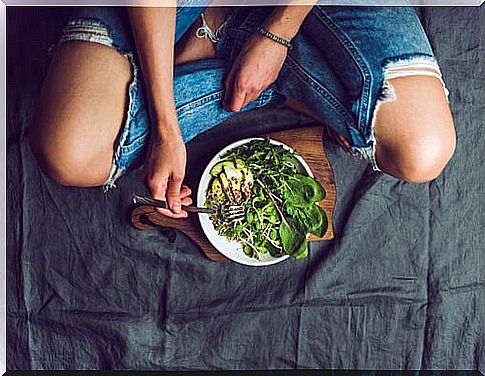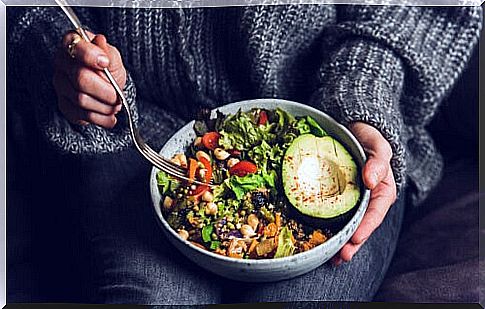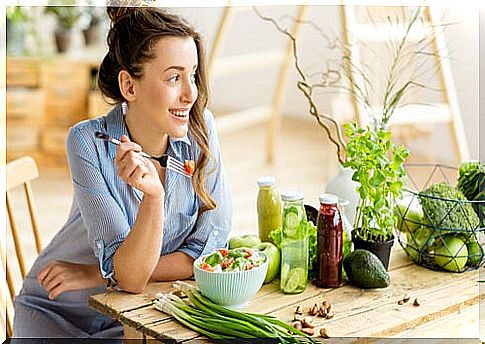Realfooding, A Fight Against Ultra-processed Foods

The R ealfooding, also called real food is a lifestyle that popularizes the hand of Carlos Rios, dietitian. The objective of this innovative movement is to educate people about their diet and encourage the population to change their nutrition and lifestyle.
It is a current that defends that we live in the “Matrix” , because we are not aware of what food we eat. This current defends that, influenced by marketing and advertising, on many occasions we go from making a critical analysis of our diet.
From the Realfooding arise the realfooders, defenders enact and carry out the “real food”. They are people who decide to put aside the ultra-processed foods that they consider harmful. So they decide to join a healthy lifestyle beneficial to their health, with full awareness and knowledge of the food they eat.
That is, how do I know which foods are considered “real food” and which are part of the ultra-processed group? Well, the Realfooding movement invites us to ask ourselves: “Does the food that I am eating really provide me with any nutrients? Is its taste and smell real or is it the result of industrial processing? Have I stopped to look at the ingredients of the food that I am eating? Am I aware of what I eat?

What is Realfooding?
Realfooding, as Carlos Ríos explains, is a lifestyle based on eating little or no processed food. In this sense, it is a fight against the food industry and its evolution in recent decades, which sells us ultra-processed foods as if they were healthy and essential for our diet, without being so.
This revolutionary concept of nutrition classifies foods into three large groups:
- Real food or, in other words, those foods that are not subjected to a minimum or no industrial processing, so the quality of their properties remains intact: vegetables, legumes, fish, eggs, cereals, unprocessed meat, fruit …
- Good processed, that is, foods that are processed with 1 to 5 ingredients, without finding significant amounts of sugar, refined flour or refined vegetable oil among those ingredients. Therefore, good processed foods are foods subjected to a light or moderate industrial processing where their natural properties are not affected or with a minimal effect, preserving the quality of the food. We are talking about: canned legumes, 100% whole grain breads, fermented dairy, frozen vegetables, extra virgin olive oil …
- Ultra-processed, foods with a high industrial processing based on refined flours, refined vegetable oils, added sugars, additives and salt. We are talking about a pernicious treatment that is hidden behind good advertising campaigns. A common strategy, in this sense, is that the packaging of the product usually highlights what the product lacks -such as sugar-, ignoring those dangerous ingredients that it does contain.
Why are ultra-processed so bad?
Proponents of Realfooding claim that ultra-processed foods are harmful to health, and that they also displace and replace real foods, which do provide nutrients. Thus, it would be a matter of stopping ingesting empty calories and changing them for other sources of energy composed of elements or ingredients of high nutritional value.
The EPIC study ( European Prospective Study on Diet and Cancer ) revealed that the consumption of 150 kilocalories per day from sugary drinks was associated with a substantial increase in the risk of developing type 2 diabetes.
In turn, a study carried out in France, led by Mathilde Touvier among other leading professionals in the field, ensures that increasing this type of food by 10% in the diet can raise mortality by up to 14%.
In short, according to these data, ultra-processed foods not only do not provide benefits to our body, but ultra- processed foods pose a risk to our health, especially in the long term.

So shouldn’t I eat any ultra-processed foods?
Focusing our diet on ultra-processed foods, substituting real foods in our nutrition, does not seem to benefit us at all. Now, that does not mean that a minimum percentage of the diet cannot be used to eat some ultra-processed food (10% of the diet). Nor does it mean that this movement, Realfooding, is the panacea and that behind it there are no economic interests.
We refer to it because it can be a stimulus, like many others, to produce a critical reflection on what we eat. A turning point to understand that, when we go to the supermarket, there are a lot of products with attractive packaging. Images or labels that make them stand out from the rest, and that promise health and flavor, when they are far from producing or caring for the latter.








